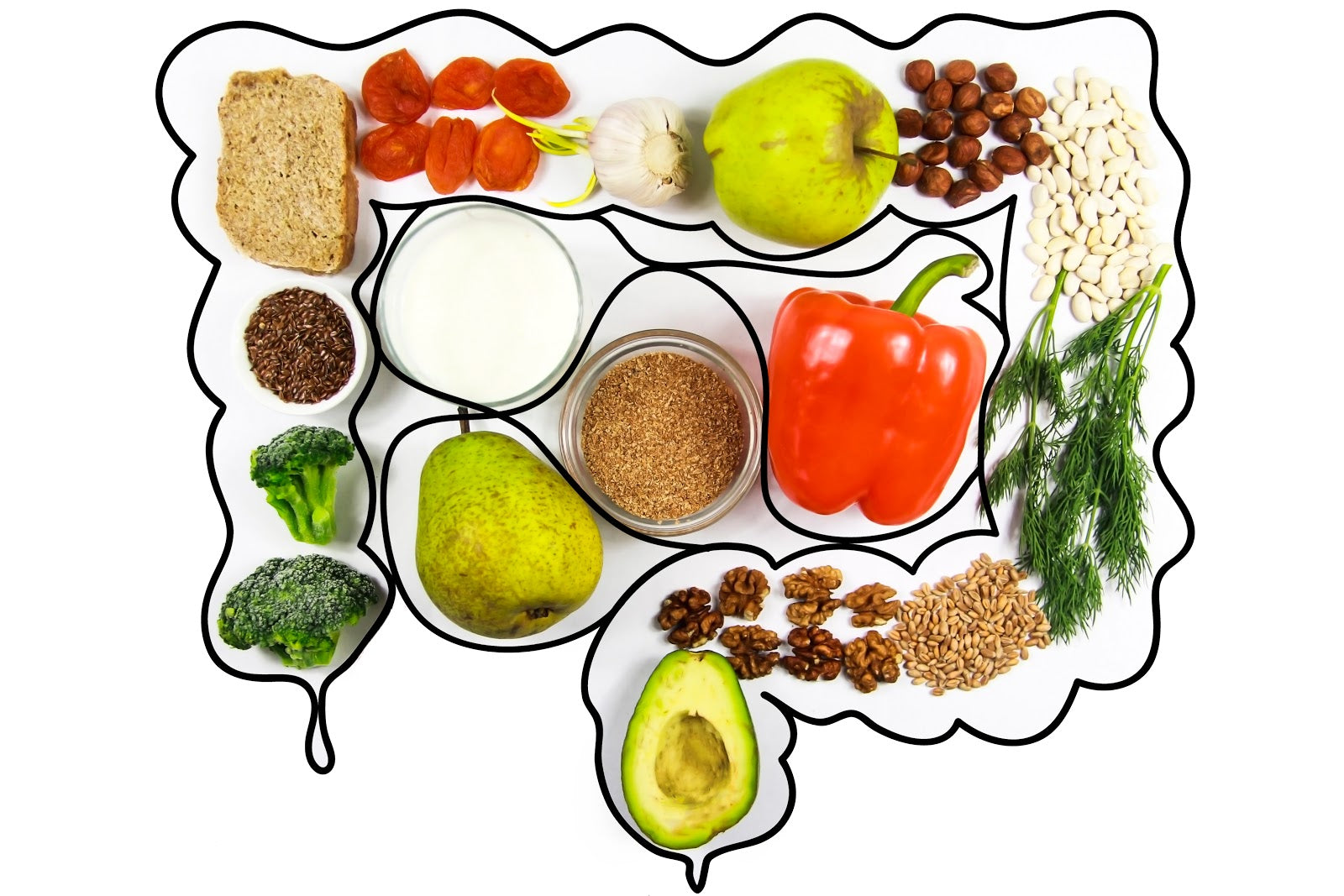Restore Gut Health With These Best Practices
Symptoms of Gut Troubles
You may think that the symptoms of gut troubles directly relate to digestive upset, but that's not actually the case. Of course, chronic heartburn, gas, bloating, loose stool, constipation, irritable bowel syndrome (IBS), and other digestive diseases are often a result of something going haywire inside your digestive tract. But those aren't the only symptoms of gut troubles. More systemic problems can occur if gut issues — especially those related to the gut microbiome — go untreated. Your microbiome is a complex system of trillions of microbes (bacteria, yeast, viruses, and protozoa) living inside your gut, particularly in your large intestine (1). In a healthy gut, the beneficial microbes are in balance with the potentially dangerous ones. The good bacteria keep the bad in check and even perform vital functions for your health by digesting fiber and boosting your immune function (1). It's when these microorganisms fall out of balance that health issues can arise. A major problem that can result is chronic inflammation, and the cascading effects of an inflamed gut lining can get pretty serious.Leaky Gut
Leaky gut, a term that basically means intestinal permeability, happens when the tight junctions in your intestinal lining loosen and allow partially digested food particles and potentially harmful microbes (bad bacteria) out of your gut and into your bloodstream (2). In a healthy system, there's no permeability in your gut wall — what goes into your mouth stays in your system until the nutrients are extracted and the rest is passed through the bowels. In an inflamed digestive system, whether due to bacterial overgrowth, an overtaxed system, genetics, or something else, tight junction integrity is compromised, and things can start getting wonky. Leaky gut syndrome is a relatively new idea in the conventional medical world, but functional medicine doctors and naturopathic doctors (NDs) have been working on ways to remedy it through holistic treatments. These include changes in diet, supportive supplementation, improved sleep schedule, and stress management.Gut-Related Health Problems

How to Restore Gut Health
Now that you know the potential downsides of an imbalanced gut, it's time to wade through the potential solutions. As we mentioned, a holistic approach involves a healing diet, supportive supplementation, improved sleep schedule, and stress management. Each of these may seem straight-forward, but a quick search online will reveal everyone has an opinion on this topic, and each one varies. It's helpful to have a holistic medical professional like a functional medicine doctor or ND run some specialized tests to help pinpoint the root cause of your particular symptoms. That way, they can walk you through the protocol they believe is right for you. But short of running those expensive tests and seeking out a doctor you trust, there are a few things you can do on your own to get started.Gut Cleanse

- Sugar (including sugary snacks like cookies, cake, and candy)
- Refined flours and grains
- Conventional meat and dairy
- Alcohol
- Overly processed foods
- Caffeine
- Fresh fruits and leafy green vegetables
- Fermented foods like sauerkraut, coconut kefir, and kombucha (Limit kimchi if you're sensitive to spice at this stage, but feel free to add it in later once you're feeling less sensitive)
- Bone broth
- Well-cooked, organic and pasture-raised meats and wild fish
- L-glutamine (amino acid) for intestinal repair (10)
- Prebiotics to help feed the healthy bacteria (11)
- Probiotics to replenish the good bacteria (Look for products that have both lactobacillus and bifidobacteria to make sure you get a diversity of bacterial strains.) (12)
- Omega–3 fatty acids to help reduce inflammation (13)
- Aqueous humic substances (prehistoric dirt) to support the growth and colonization of microbiota (14)
Stress and Sleep





2 comments
Hi, Barbara,
Thanks for your message 🙂
Although our products are all natural supplements, and we do have customers with specific health conditions use them, we always recommend consulting a healthcare professional first to assess whether they are suitable – just to be sure. Unfortunately, Barbara, as we’re not doctors, we’re unable to give advice regarding specific medical conditions. We’d love to support you on your health journey, and would need to do so in alignment with the advice of your trusted healthcare professional.
You can find all of our product’s ingredients on our website, here…
https://happymammoth.com/collections
If you have any further questions, please don’t hesitate to email support@happymammoth.co, and we’ll do everything we can to help you 💓
Would your products help I have been diagnosed with Parkinson’s Desease.